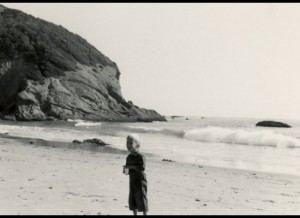
 Ted Danson (yes, that Ted Danson) isn’t your typical ocean activist. Though he is best known as the bartender on Cheers, he has been actively involved in marine conservation issues for more than 25 years. While living in California to work on Cheers, he took a walk on the beach with his daughters. When they came across a sign that read “water polluted, no swimming”, he didn’t know how to explain to his disappointed children what was wrong with the ocean. He decided to learn more, began to work with local scientists and conservationists, and eventually co-founded the American Oceans Campaign (one of the founding members of Oceana) Danson’s decades of knowledge of and passion for the oceans are clear in his new book, “Oceana: Our Endangered Oceans And What We Can Do to Save Them”.
Ted Danson (yes, that Ted Danson) isn’t your typical ocean activist. Though he is best known as the bartender on Cheers, he has been actively involved in marine conservation issues for more than 25 years. While living in California to work on Cheers, he took a walk on the beach with his daughters. When they came across a sign that read “water polluted, no swimming”, he didn’t know how to explain to his disappointed children what was wrong with the ocean. He decided to learn more, began to work with local scientists and conservationists, and eventually co-founded the American Oceans Campaign (one of the founding members of Oceana) Danson’s decades of knowledge of and passion for the oceans are clear in his new book, “Oceana: Our Endangered Oceans And What We Can Do to Save Them”.

Oceana covers many of the major issues threatening our oceans, including ocean acidification, climate change, and pollution. The majority of the book, however, focuses on overfishing. Danson’s description of overfishing issues are thorough, engaging, and, for the most part, backed up by science. He discusses the concept of “fishing down the food web”, how fishermen target smaller and smaller fish as the larger, more desirable species are wiped out. Research which showed that global fisheries may have peaked in 1988 despite false catch statistics made by the Chinese government is covered. Danson focuses not just on global trends (90% of the large fish have disappeared since the 1950’s), but also on individual species (the average weight of a landed swordfish has declined from 266 pounds to 90 pounds since the 1960’s). Numerous scientists who have demonstrated that many of the largest fish in the ocean are gone are interviewed. If all that science doesn’t persuade you, Danson also interviews fishermen who know that “things aren’t what they used to be”.
It is undeniable that the oceans are being overfished, and it is undeniable that this will have dramatic effects on marine ecosystems. However, one of the predicted eventual outcomes of global overfishing, a total worldwide collapse of all economically important fish stocks by 2048 so that “jellyfish soup” is the only available seafood, is discussed in great detail. Although Oceana presents it as inevitable, this conclusion has never been widely accepted by the fisheries science community. The research paper that made this original claim defined a fishery as “collapsed” if landings fell to less than 10% of historical highs. However, many reasons other than reduced wild abundance can contribute to lowered landings, including a change in market demand (many fishes are no longer considered “trendy”, and as value declines, so does the desire of fishermen to catch that species), the rise of aquaculture (if it’s cheaper to grow a species than to go out and catch it, landings for that species will decline) and management plans (because a fish stock was low at one point, fisheries managers may have reduced the allowable catch for that species). I hope that we never see what the world is like if current overfishing trends continue for decades, but it probably won’t be as bad as Oceana claims.
Although Danson passionately advocates for an end to overfishing, Oceana has none of the anti-fishermen rants found in many conservation books. He claims that the problem with overfishing is not local, small-scale fishermen- it is the industrial fleet. According to Oceana, supertrawlers, which catch nearly 50% of total landings, represent only 1% of the worldwide fishing fleet and employ only 2% of the world’s total fishermen. He describes the horrible working conditions on many of these ships, and how industrialized nations buy fishing rights in poor nations at the expense of local fishermen. Danson manages to support the environment while standing up for jobs for small-scale fishermen, and a similar conservation ethic is found throughout the book. The false dichotomy between conservation and employment, a staple argument of many industries, is turned on it’s head by Oceana. Danson offers a simple solution to protect the environment and jobs: don’t restrict fishing as a whole, restrict industrial-scale fishing.
While the content of Oceana is spectacular, the book is also visually stunning. Throughout, striking infographics and photographs hammer important points home. This book is detailed enough to be used as a textbook for an ocean conservation course, and is so well written that non-scientists will enjoy reading it.
Ted Danson gets it. He cares deeply about the oceans, understands the science, and knows that the way to fix things is public education and working with fishermen and energy companies instead of demonizing them. If every seafood consumer and every policymaker with power over the oceans read this book, the largest habitat on Earth would be in much better shape.

Pauly, D. (1998). Fishing Down Marine Food Webs Science, 279 (5352), 860-863 DOI: 10.1126/science.279.5352.860
Pauly, D., Watson, R., & Alder, J. (2005). Global trends in world fisheries: impacts on marine ecosystems and food security Philosophical Transactions of the Royal Society B: Biological Sciences, 360 (1453), 5-12 DOI: 10.1098/rstb.2004.1574
Mullon, C., Freon, P., & Cury, P. (2005). The dynamics of collapse in world fisheries Fish and Fisheries, 6 (2), 111-120 DOI: 10.1111/j.1467-2979.2005.00181.x
Murawski, S., Methot, R., Tromble;, G., Hilborn;, R., Briggs;, J., Worm, B., Barbier, E., Beaumont, N., Duffy, J., Folke, C., Halpern, B., Jackson, J., Lotze, H., Micheli, F., Palumbi, S., Sala, E., Selkoe, K., Stachowicz, J., & Watson, R. (2007). Biodiversity Loss in the Ocean: How Bad Is It? Science, 316 (5829), 1281-1284 DOI: 10.1126/science.316.5829.1281b
Myers, R., & Worm, B. (2003). Rapid worldwide depletion of predatory fish communities Nature, 423 (6937), 280-283 DOI: 10.1038/nature01610
Watson, R., & Pauly, D. (2001). Systematic distortions in world fisheries catch trends Nature, 414 (6863), 534-536 DOI: 10.1038/35107050
Worm, B., Barbier, E., Beaumont, N., Duffy, J., Folke, C., Halpern, B., Jackson, J., Lotze, H., Micheli, F., Palumbi, S., Sala, E., Selkoe, K., Stachowicz, J., & Watson, R. (2006). Impacts of Biodiversity Loss on Ocean Ecosystem Services Science, 314 (5800), 787-790 DOI: 10.1126/science.1132294
Thanks for this insightful book review, will definately have a look at what sounds a great addition to the library of a marine biologist!